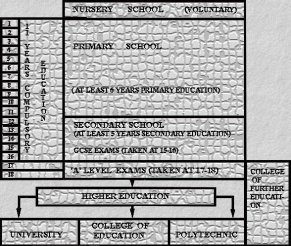A new accreditation system to recognise teachers’ expertise and ability in the classroom rather than just their completion of a training course is part of a new vision for schools to raise standards and extend opportunity to every child.
In a white paper launched today (17 March 2016), Education Secretary Nicky Morgan has set out radical new proposals which will transform England’s schools and build on the sustained progress that has already been made over the course of the last Parliament.
Alongside a blueprint for a system of full academisation, the white paper outlines significant changes to teacher qualifications which will recognise teachers for the experts that they are and give teaching the same status as doctors and lawyers.
Alongside this are plans to better develop and train the next generation of school leaders and ensure they are working where they are needed most. This is part of the government’s commitment to empower and extend the reach of the best leaders.
Despite the progress already made - 1.4 million more children are in ‘good’ or ‘outstanding’ schools compared to 2010 - there are still areas of underperformance around the country.
Ensuring talented and inspirational leaders are working in those areas is integral to providing educational excellence for all. To ensure great leaders are not discouraged from working in those areas the white paper is proposing the introduction of new ‘improvement periods’ during which schools will not be inspected by Ofsted.
For schools which have been judged as requiring improvement, an improvement period of around 30 months will be applied. Where schools have been taken over by a new sponsor following a period of underperformance, Ofsted will not reinspect until their third year. This will give heads the chance to bring about real improvement and change before being inspected again.
More widely the inspectorate will also consult on the removal of separate judgements on the quality of teaching to make clear that schools are being held to account for the outcomes their pupils achieve, not the teaching styles they use.
A new, more challenging accreditation will replace qualified teacher status (QTS) and will be awarded when a teacher has demonstrated classroom proficiency, including areas such as behaviour management, and subject knowledge.
We have not only the best qualified workforce in history, but also a workforce that is increasingly focused on constant self-improvement, that is driven by the evidence and which like other professions is breaking new boundaries, sharing what works, challenging one another and unleashing greatness.
This white paper recognises this, and goes further than any government has done to recognise teachers as the professionals they are.
More importantly, the decision on whether to accredit a new teacher will be made by headteachers themselves. This will put the power in the hands of those who know best what makes a great teacher - outstanding schools and heads.
The white paper also confirms the government’s plans for all schools to either become academies, or be in the process of converting to academy status, by the end of 2020.
It also proposes that the vast majority of schools work in multi-academy trusts (MATs), allowing them to share resources, staff and expertise to continue driving up standards. The new structure will also provide further career development options for teachers so they can continue to work in the classroom. This will be supported by the further funding announced by the Chancellor in the budget.
The new system of supported autonomy will mean that not only are schools able to drive improvement themselves but where a school is struggling, action can be taken sooner and support can be provided.
In her speech Nicky Morgan will say:
All of us in education, from politicians and civil servants in Westminster to our phenomenal teaching workforce in classrooms across the country do what we do, because we believe in the potential of the next generation.
This white paper is about ensuring that all of us can play the role that we do best, it’s a blueprint for how we can work together, not just to improve standards, important though that is, but to create a fundamentally different education system - an education system fit for the 21st century, an education system which is truly focused on the future.
A range of support for areas of underperformance, where not enough children have access to a good school place, has also been unveiled.
This will involve giving those ‘Achieving Excellence Areas’ priority access to programmes such as the National Teaching Service and other initiatives that ensure they are accessing the expertise from other outstanding schools and MATs, as well as the resources they need to bring about real sustained improvement.
At the heart of this vision is empowering parents to hold schools and the system to account. A new parent portal, the first of its kind, will provide information on school performance, guidance on how the school system works and information on specific aspects such as a clearer and fairer school complaints and admissions system.
In her speech Nicky Morgan will say
This portal will provide parents with everything they need to understand their children’s education, it will cut through the jargon we’re all guilty of using and explain what they should be able to expect and when, it will show them how to raise complaints and what the options are available to them.
Sir Steve Lancashire, CEO of REAch2 and REAch4 says:
This is a watershed moment for education and great news for parents and local communities. It is an opportunity to transform schools right across the country and ensure every child has the best education possible.
What has been achieved through the existing network of academies can now be rolled out to the benefit of all.
Other reforms outlined in the white paper include:
- a continuing commitment to support an independent college of teaching by making available up to £5 million in staged funding as the college demonstrates its credibility, independence and support within the profession
- encouraging more leadership development training to be delivered by successful schools
The white paper follows the Chancellor’s budget commitment to invest in the next generation including funding for schools to increase the length of the school day, helping young people develop the skills they need to compete globally.
It also sets out how the schools white paper fits into the department’s wider agenda which includes children’s services, early years, 16 to 19 education, as well as schools.








